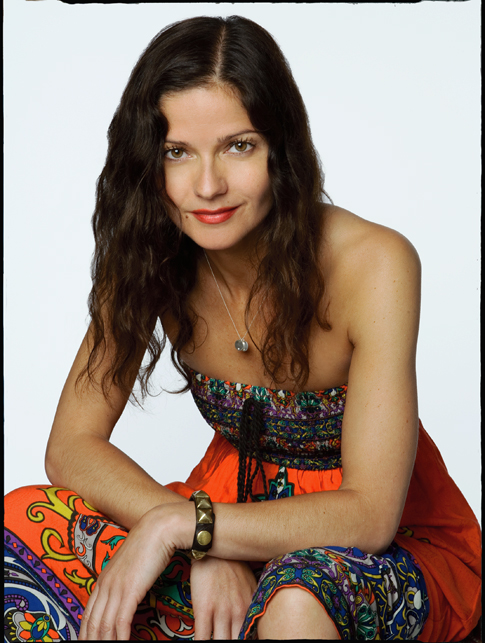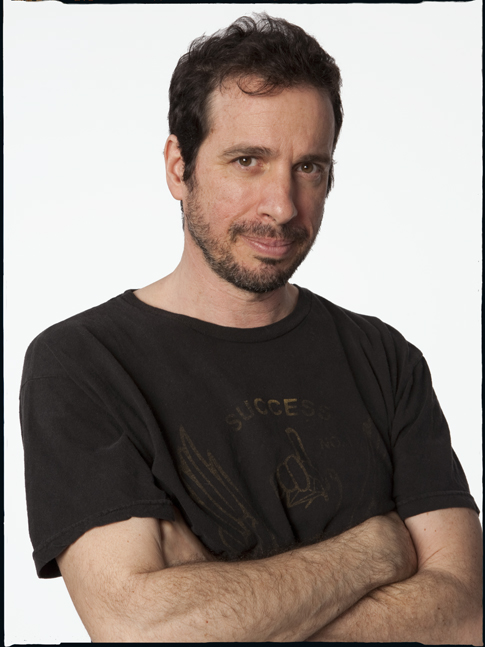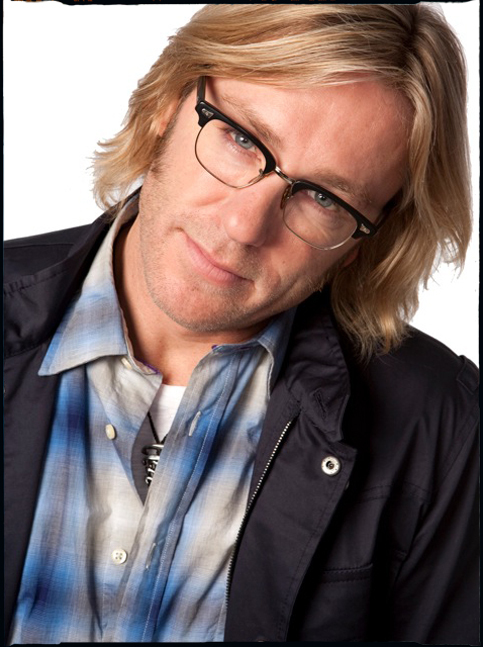The Thomas Wolfe adage, "You can't go home again," turns out not to be completely true, as Michael Cuesta's new film, The Roadie, illustrates. You can, in fact, go home again, but it is going to involve serious heartbreak, a coke binge, multiple altercations, confronting uncomfortable truths and your own mother slapping your just-punched face.
The film makes the excruciating small talk and bad Chardonnay accompanying most high school reunions look like a nap by the pool.
Director Michael Cuesta who made L.I.E. and directed episodes of Six Feet Under, Dexter and True Blood, and his brother Gerald, created this very personal film about a grown man coming to terms with the fact that he has not realized the musical dreams of his youth, while intensely reuniting with people from his high school. In addition to a homecoming, Roadie is also a mother and son film, encapsulating perfectly the pain of growing up.
Cuesta admits, "I am a bit of a pussy I guess, in this respect, because I avoid all of my own reunions." This is incredible news, given that his whole film centers around this idea. For the many of us who can relate, this film is the perfect way to attend your own high school reunion.
From afar.
Jimmy Testagross (Ron Eldard), fired from the Blue Oyster Cult after touring with them since the 1980s, returns home to his mother's house in Queens. His old room, covered in rock posters with hundreds of vinyl LPs, has been left untouched, as though his 17-year-old-self might return at any minute.
Pair this with running into his first love, the gorgeous rocker-chick (Jill Hennessy) in his neighborhood, who still shares his dreams but is now married to his high-school nemesis (Bobby Cannavale), and you have a recipe for some highly engrossing disharmony.
Michael Cuesta claims that when he first saw a picture of Ron Eldard on the internet, he yelled, "That's him! That's the Roadie!" It seems unlikely that the leading actor of Black Hawk Down, an ER love-interest and the subject of numerous "love odes" on YouTube would immediately come to mind as the leading candidate for an overworked, overweight man who manages musical equipment. But as Eldard amusingly says, "Let's hope he was looking 'inner.'"
For the role, Eldard added nearly thirty pounds to his usual boxer's physique. Cuesta was looking for a real New York actor, and much of the filming took place in Forest Hills, ten minutes from a home Eldard lived in growing up.
Eldard has the ultimate actor's gift: a face that shows a thought the moment he thinks it. And he is utterly fearless. He lets the camera in, in a way that is so personal and incredibly deep that the viewer can't help but to experience what he feels. Because of all of the pain, humiliation and discomfort he goes through in the course of the movie, we are totally on this ride with him.
Eldard lost his own mother growing up, and his relationship with his mother in the film (Lois Smith) is exquisite, painful and tender. Eldard says, "Lois is a giant of actors. She was in East of Eden and Five Easy Pieces. She's one of the great living actors walking the planet. We never once spoke about a scene, and it wasn't a conscious thing. I've never had that experience in my life. When we finally talked, we had an incredibly beautiful moment that wasn't only about acting, and I was touched by it, deeply. Because of the fact that I don't have a mother, and I never really knew my mother, I was just three when she died. I felt like, 'Oh, I had a mom for a little while there.' It was a very moving experience for both of us."
Eldard reminds us in Roadie that he really does have that rare ephemeral gift. The fact that he was chosen to reprise Marlon Brando's role in On the Waterfront on Broadway tells us everything we need to know, although his stories about that production make the current horrors of the Spider-Man look like an episode of Sesame Street.
The Roadie contains a "I coulda been a contender!" moment perfectly executed by Eldard as he talks to his mother about how his own musical dreams might have gone better had his father not broken his guitar and had his gifts been encouraged. And as his mother listens, applying disinfectant to his face after a street-fight, she suddenly smacks it instead!
What a true but often cinematically-hidden vision of the mother-child relationship: sometimes hitting the face you are supposed to heal.
In an industry of 'stars' and reality television, Eldard is totally committed to the craft, appearing on Broadway< in Death of a Salesman, Biloxi Blues and Doubt, with Dame Eileen Atkins. "She's amazing, beautiful and rock-star hip. She's in her seventies, but ten years closer to my age and I might have gone for it!"
He has an extraordinarily playful sense of humor, telling Arthur Miller, deadpan, when he was cast as Biff in Salesman, "I love the script, but I've made a few changes, nothing big. Just feeling that the whole father-son thing might be a little over-wrought!" He deserves his own episode of Inside the Actor's Studio. James Lipton, are you listening?
Jill Hennessy, known to millions for her roles in Law and Order and Crossing Jordan, in real life relates more closely to this part than perhaps any of her television roles. "They're always asking me to play doctors and lawyers!" When she was cast on Law and Order in the role that would make her famous, she "didn't even own a TV!"

Actress Jill Hennessy. Portrait by Leslie Hassler.
When Hennessy was nineteen, she "busked" in real life (playing guitar and singing in the subway for money) to pay the rent in Toronto, before being discovered by David Cronenberg, with her twin sister, to appear in a scene with Jeremy Irons in Dead Ringers.
In real life, she is a talented musician and songwriter -- her own music is used in the film -- and she has played live at Lilith Fair and sung with her favorite band, The Indigo Girls. "The song I sing (in Roadie) is incredibly personal. It's the title track to my album, Ghost in my Head. A lot of the album is about my childhood and friends from my childhood. People who got the short end of the stick in life."
What does she love most about music? "It's the most intimate connection I've ever had with an audience, especially when it's my music. And they're giving it right back to me. We are all on the stage. Feeling like we're in a living room. Talking about what we treasure most in life."
A tiny, slightly tough and very beautiful creature, she apologizes for having coffee breath and when assured that her interviewer has the same, says, "We could probably kiss right now, and it wouldn't matter!"
If this the end result, we should all start drinking coffee. In mass quantity.
There are moments in Roadie, where Nikki and Jimmy are back in his room, listening to their favorite music, and a kind of magic begins to happen, but she is now married. Hennessy says, "When he comes back, all these memories start flooding back, how exciting life used to be, and she remembers her hopes of becoming a huge singer and songwriter." As Nikki, through Hennessy's singing, we hear her plaintive longing, an imagining of beautiful dreams that were never fulfilled.
The climax of the film happens when Eldard ends up in a motel with Hennessy and Cannavale. The scene that ensues involves lust, longing, sweat, cocaine and music on a high that is so palpable that the audience at the premiere were "banging" their heads in time with the music.
Eldard's musical riff and cocaine high are so real that for those of us who have never done cocaine, this feels as close as we're ever going to get. "For me, too!" Eldard says. Incredibly, given his cocaine 'tour de force', he has never actually done the drug. "Bobby and Jill began to nervously giggle in one take, they weren't sure what I was going to do next." Neither are we, and that's the excitement of the scene. All three actors are operating on all cylinders. We have no idea what kind of love or violence is about to take place. Eldard says, "That scene is a great run." It goes from confrontation to betrayal, but then a larger truth emerges that allows Jimmy to continue: his failed dreams are brighter that the lives of his classmates who never even dared to try.
As Cuesta describes it, "Jimmy says, I am worthy. I've done this in hotel rooms around the world, and you're still here."

Writer and Director Michael Cuesta. Portrait by Leslie Hassler.
Michael Cuesta's people said, "This is your feel-good movie?!"
Cuesta says, "But it is, in that we empathize with an experience that is entirely too human."
Coming away from the film, the viewer can't help but feel that we've been on a very personal trip and have had a homecoming of our own. This movie isn't just about bands or the road. It's about home, our own disappointments, and how much it hurts when the people we love can't accept us in the ways we wish they would. And, even more poignantly, why we can't accept ourselves. Really, we are all The Roadie.
